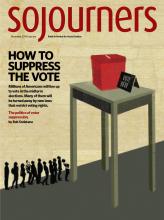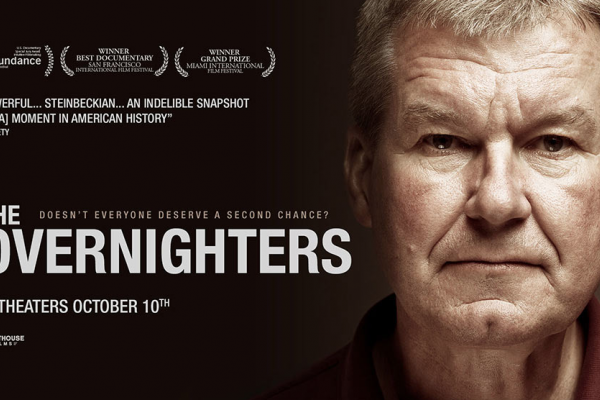HIGHBROW FILM criticism and fanboy comment pages alike often manifest as if their purpose is to make snarky points about who knows how much about what. Whether in an academic journal or on Reddit, film criticism can either get the point or be the point. We can either convince ourselves that we exist to show the world how smart we (think we) are—or to facilitate a conversation about the purpose of art that’s spacious enough to stimulate both the heart and the mind.
The lack of clarity about such purpose means that it has to be continually reasserted, so here goes: The purpose of art is to help us live better. I contend that this is the primary evaluative lens through which we should watch. Of course aesthetics, craft, and content matter, but how I watch films depends at least as much on the notion that art emerges from a human creative impulse that is at its best directed at the common good.
The protagonist of the new documentary The Overnighters has made a similar shift in consciousness regarding his own vocation. North Dakota pastor Jay Reinke understands that the purpose of church isn’t far different from that of art, and he opens his building to economically disenfranchised folk trying to find a job in the oil boom, letting them stay overnight despite local suspicions. It’s a manifestation of Christian vocation mingled with lightly ringing alarm bells—the pastor appears to be a Lone Ranger, not collaborating with supportive church leaders or members; the jobs are in an environmentally degrading industry—and a picture of community service that seems at once miraculous and exhausting.
Read the Full Article

